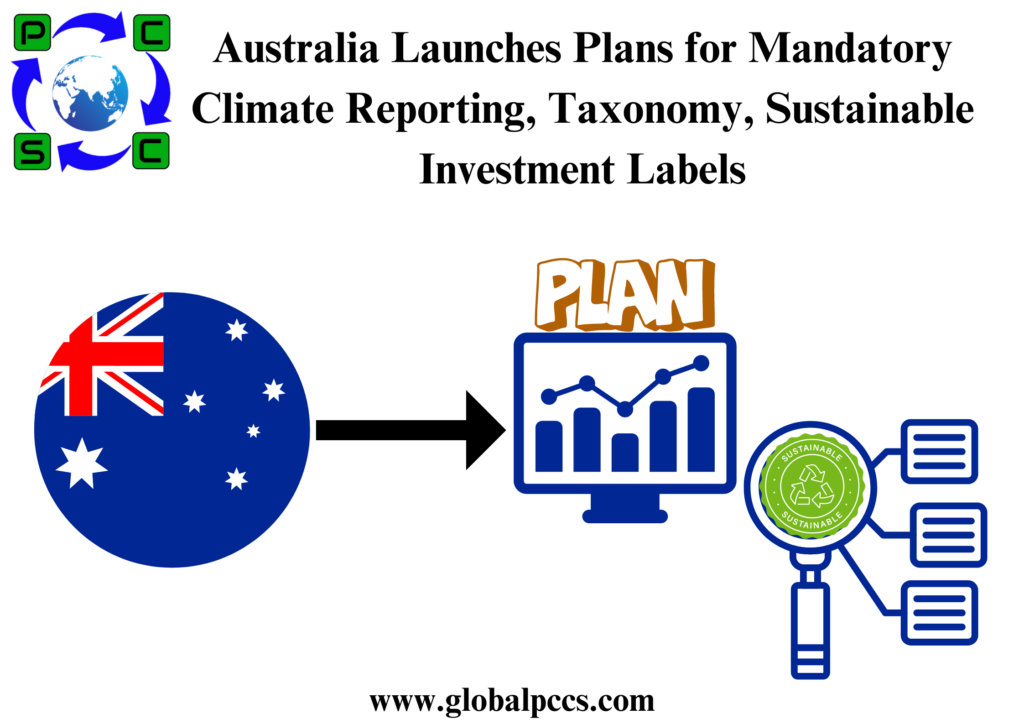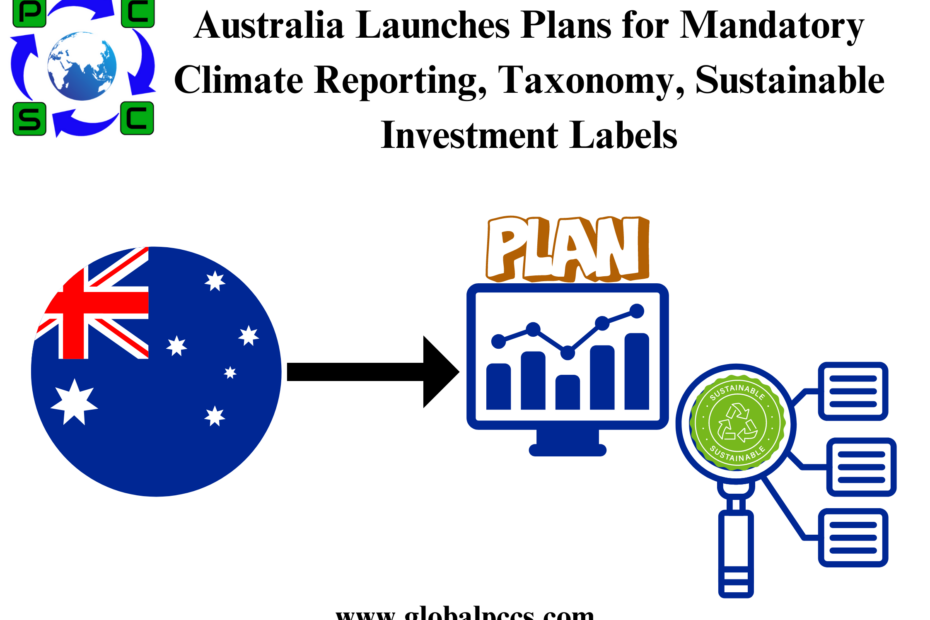 The Government of Australia’s Treasury department announced today the release of its Sustainable Finance Roadmap, outlining its plans to develop and reform financial markets to support the mobilization of private capital needed to finance the transition to a net zero economy, with key priorities including instituting mandatory climate-relating reporting, establishing a sustainable finance taxonomy, and instituting a labeling regime for sustainable investments.
The Government of Australia’s Treasury department announced today the release of its Sustainable Finance Roadmap, outlining its plans to develop and reform financial markets to support the mobilization of private capital needed to finance the transition to a net zero economy, with key priorities including instituting mandatory climate-relating reporting, establishing a sustainable finance taxonomy, and instituting a labeling regime for sustainable investments.
The release of the new roadmap follows the government’s announcement in December 2022 of plans to ““pursue a coordinated and ambitious sustainable finance agenda,” and the subsequent launch by the Treasury in November 2023 of its proposed Sustainable Finance Strategy, outlining the anticipated investments and reforms required to support a sustainable finance sector, with the new roadmap detailing the implementation of the strategy.
The strategy follows a “climate-first, not only” approach to sustainable finance, due to the systemic nature of climate-related opportunities and risks, with plans to expand to other sustainability-related issues and frameworks over time.
The initial focus of the government’s sustainable finance strategy is on the establishment of mandatory disclosure of climate-related financial risks and opportunities. Australia released draft legislation earlier this year which would introduce climate-related reporting requirements for large and medium sized companies, including disclosures on climate-related risks and opportunities, and on greenhouse gas emissions across the value chain.
According to the roadmap, the Australian Accounting Standards Board (AASB) is expected to finalize its climate reporting standards in August 2024, the Australian Auditing and Assurance Board (AUASB) is developing assurance standards for climate disclosures in late 2024, and reporting requirements for the first set of companies to be covered by the new rules will commence on January 1, 2025. The Treasury also aims to develop and publish best practice guidance for the disclosure of corporate transition plans by the end of 2025.
The strategy also includes plans for the development of a Sustainable Finance Taxonomy, providing a set of criteria that can be used to evaluate the alignment or contribution of economic activities to climate and other sustainability objectives. According to the roadmap, the Australian Sustainable Finance Institute (ASFI) will finalize the development of the initial taxonomy by the end of 2024. Aligned with the ‘climate-first’ strategy, the initial taxonomy will cover “green” and “transition” activities that contribute to climate change mitigation, and will focus on six key sectors, including electricity and energy, industry, built environment, transport, resources, agriculture, and land. The government will also explore expanding the taxonomy to cover additional sustainability priorities, according to the roadmap.
Under the sustainable finance strategy, the government has also proposed developing labels for investment products marketed as sustainable, aimed at helping investors understand how sustainability considerations are factored into investment products or strategies, amid a proliferation of “sustainable” investment products. According to the roadmap, the Treasury will begin its detailed work on the development of a sustainable investment labelling regime in early 2025, with legislation on the system to be introduced in 2026, and the regime anticipated to take effect in 2027.
The roadmap also outlines steps the government will take to monitor and address greenwashing, expand regulatory capabilities to identify and respond to systemic climate-related financial risks to banks, insurers and superannuation funds, and help address key sustainability data challenges. Additionally, the roadmap covers the government’s issuance of green bonds, noting that its first issuance was early this month, with the offering raising $7 billion.








 Authorised IMDS & CDX Training & Consulting partner for
Authorised IMDS & CDX Training & Consulting partner for






